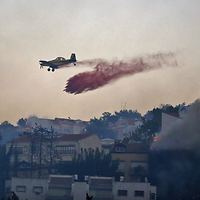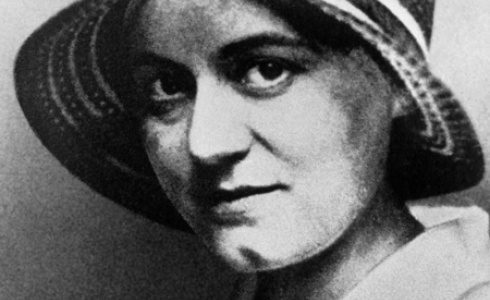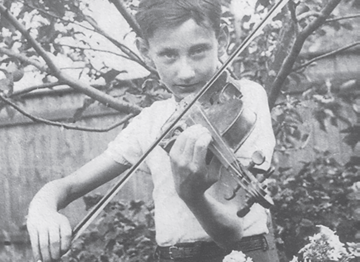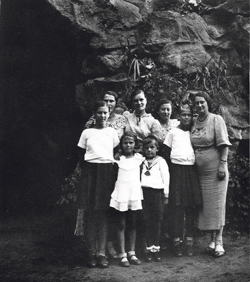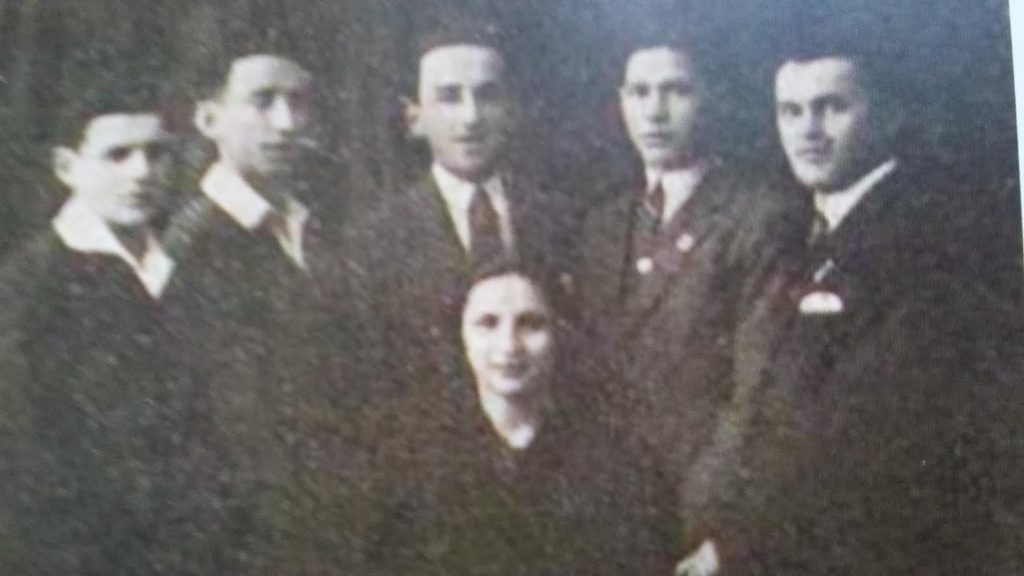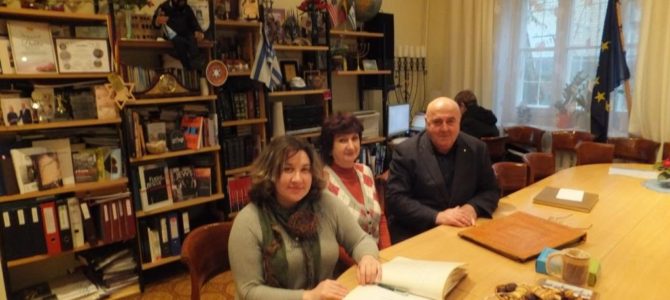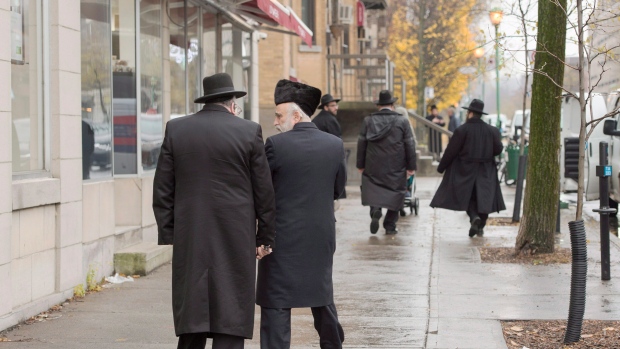Because of the short notice given, the Lithuanian Jewish Community was unable to send a speaker to the Vilnius municipality’s discussion renaming Kazys Škirpa Alley held in Vilnius on November 29. Chairwoman Faina Kukliansky sent a statement which was read out loud at the discussion which follows.
The discussion initiated by the municipality of Vilnius being held today, “Should We Change the Name of Kazys Škirpa Alley?,” might have been called something else. Why not ask the citizens of Lithuania if they want to have public spaces in Vilnius named after suspected Holocaust perpetrators instead?
On the one hand, the very concept of the discussion appears strange. Does Lithuania have no one of whom to be proud, so that we can only lionize a person famous for his anti-Semitic statements, his vision of a Lithuania free of Jews and his idealization of Hitler’s Germany?
On the other hand, for most of society Kazys Škirpa doesn’t signify much, and the forum being held should theoretically at least shed some light on different aspects of his personality. Hopefully historians unafraid to express their positions and not subservient to the right-wing have been invited to participate. Were state institutions which use the word “Jew” in their titles invited to participate? Probably not.
When we marked the 75th anniversary of the Holocaust in Lithuania, there was a conference at the parliament where the historian A. Kasparavičius said all of the “power” in the Provisional Government of Lithuania and the Lithuanian Activist Front was in Škirpa’s hands. The historian noted Škirpa made no attempt to hide his enchantment with Germany and spent more than 10 years there, working as consul and later as military attaché. It was during this period, between 1933 and 1934, when Škirpa’s documents sent from Berlin to Kaunas show how enthralled he was with the policies being carried out by Germany. “He had many problems because of this. President Antanas Smetona even raised the question of relieving K. Škirpa from diplomatic service at the end of the winter in 1939,” Kasparavičius said. But Škirpa wasn’t fired. He created the Activist Front in Berlin. Members of the Front sought to liberate Lithuania from Soviet occupation and organized the uprising in 1941. They foresaw a free Lithuania without Jews. It was Škirpa’s idea to create the Tautinio darbo apsaugos batalionas [TDA, National Labor Security Battalion] who shot thousands of Jews without trial at the Seventh Fort in Kaunas.
After the Soviets occupied Vilnius in 1940, Kazys Škirpa organized the nucleus of the Lithuanian Activist Front in Berlin. LAF propaganda followed official fascist propaganda, which led to Lithuanians’ active involvement in perpetrating the Holocaust. He was named [Lithuanian] prime minister in the uprising of June 23, 1941. In accepting the post of prime minister, Škirpa included in his government Rapolas Skipitis and Vytautas Landsbergis-Žemkalnis. His government included 11 ministers: 4 from Vilnius (Vytautas Bulvičius, Vladas Nasevičius, Vytautas Statkus, Jonas Masiliūnas), 6 from Kaunas (Juozas Ambrazevičius, Jonas Matulionis, Adolfas Damušis, Balys Vitkus, Juozas Pajaujis, Vytautas Landsbergis-Žemkalnis), resident of Berlin Rapolas Skipitis, plus comptroller Pranas Vainauskas. [Prevented from leaving Berlin, his minister Juozas Ambrazevičius was appointed acting prime minister in Kaunas.]
The position of the Lithuanian Jewish Community regarding the question posed by the discussion is clear: the name of Kazys Škirpa Alley must be changed. If only to honor all Lithuanian citizens.
As this discussion takes place, the Lithuanian Jewish Community yet again reminds readers there is still no monument to rescuers of Jews, to Righteous Gentiles, in Vilnius. Neither are there public places in the city named after famous Litvaks who contributed to establishing Lithuanian statehood and strengthening democratic institutions. Lithuanian history textbooks still make no mention of 600 years of shared Lithuanian and Litvak history. What sort of priorities is the Lithuanian state setting for itself?
Faina Kukliansky, chairwoman




















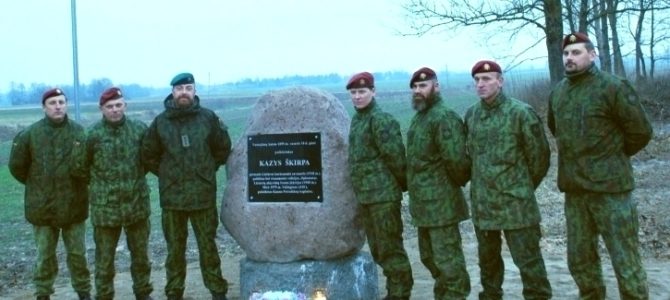
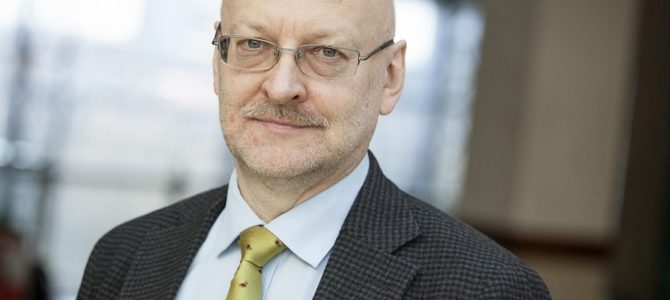
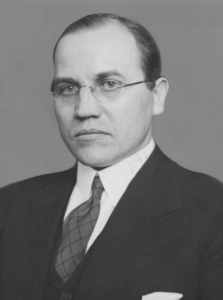
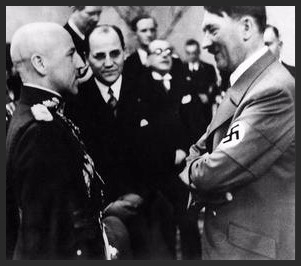
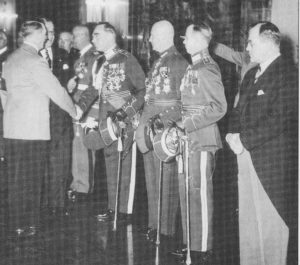 Škirpa with Hitler celebrating the latter’s 50th birthday
Škirpa with Hitler celebrating the latter’s 50th birthday